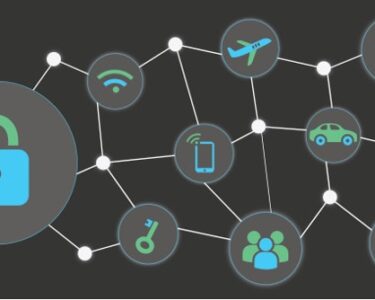
E-commerce Innovations: Transforming the Shopping Landscape
Introduction
E-commerce has become an integral part of modern life, offering consumers unprecedented convenience, choice, and access to products and services. However, the industry is constantly evolving, driven by technological advancements and changing consumer demands. In recent years, we have witnessed a surge in e-commerce innovations that are reshaping the shopping experience.
1. Artificial Intelligence (AI)
AI is revolutionizing e-commerce in numerous ways, from personalized product recommendations to automated customer support. Machine learning algorithms analyze user data to provide tailored experiences, recommending products based on past purchases, browsing history, and demographics. Chatbots and virtual assistants enable around-the-clock customer support, offering instant answers to queries and resolving issues efficiently.
2. Augmented and Virtual Reality (AR/VR)
AR and VR technologies are transforming the way consumers interact with products online. AR allows shoppers to virtually try on products, such as clothing or furniture, before they buy. VR creates immersive shopping experiences that enable users to explore virtual stores and compare products in a realistic setting.
3. Social Commerce
Social media platforms have become powerful channels for e-commerce. Consumers are increasingly discovering and purchasing products through social media posts, reviews, and influencer endorsements. Businesses are leveraging social media to showcase their products, engage with customers, and drive sales through shoppable posts and integrated checkout options.
4. Voice Commerce
Voice assistants, such as Amazon Alexa and Google Assistant, have made it possible for consumers to shop hands-free. Voice commerce enables users to order products, check out, and track deliveries simply by speaking commands. This technology provides a convenient and time-saving shopping experience.
5. Blockchain and Cryptocurrencies
Blockchain technology is gaining traction in e-commerce as a secure and decentralized way to handle transactions. It ensures data integrity, prevents fraud, and streamlines the payment process. Cryptocurrencies, such as Bitcoin and Ethereum, offer alternative payment methods that allow for faster and more secure transactions.
6. Omnichannel Shopping
Consumers expect a seamless shopping experience across multiple channels, including online, mobile, and physical stores. Omnichannel platforms enable retailers to integrate their online and offline operations, offering consistent pricing, inventory information, and customer service regardless of the channel used.
7. Subscription Boxes
Subscription boxes are becoming increasingly popular, offering tailored deliveries of products on a recurring basis. Customers can choose from a wide range of boxes, such as beauty products, snacks, or gardening supplies, and receive them at regular intervals. This model provides convenience, personalized experiences, and opportunities for brand discovery.
8. Sustainability and Ethics
Consumers are becoming more environmentally and ethically conscious, demanding sustainable and responsible shopping practices from businesses. E-commerce companies are responding by adopting eco-friendly packaging, reducing carbon footprints, and partnering with ethical suppliers.
Conclusion
E-commerce innovations are continuously redefining the shopping landscape, delivering enhanced convenience, personalization, and efficiency. From AI-powered recommendations to immersive virtual experiences, voice commerce to blockchain security, the e-commerce industry is constantly evolving to meet the changing needs of consumers. As technology continues to advance, we can expect even more groundbreaking innovations that will shape the future of online shopping.


